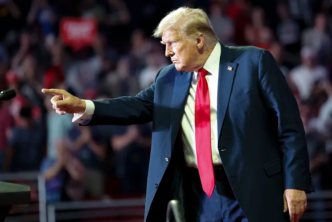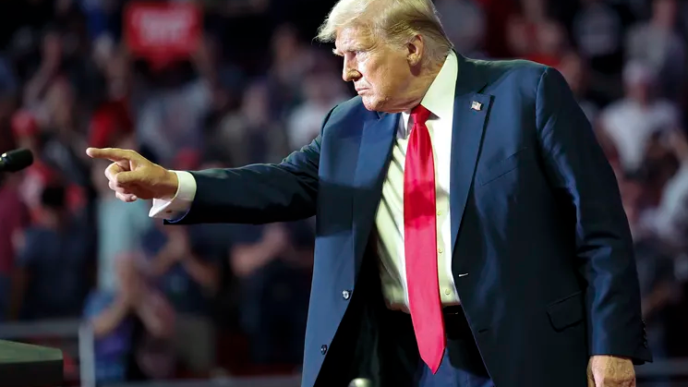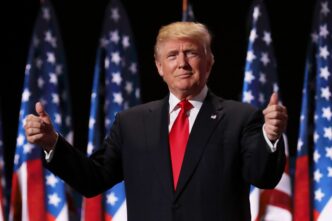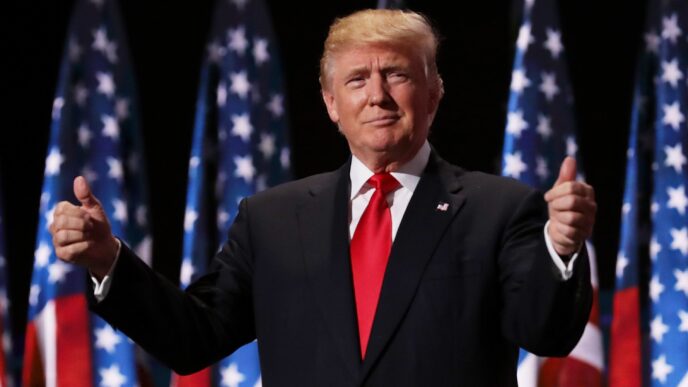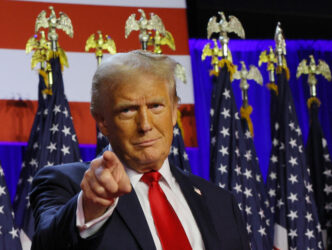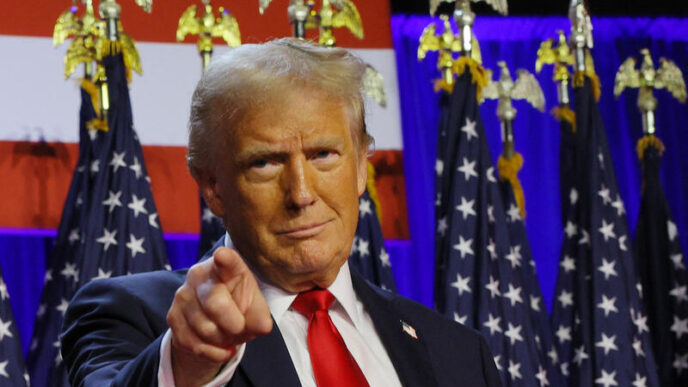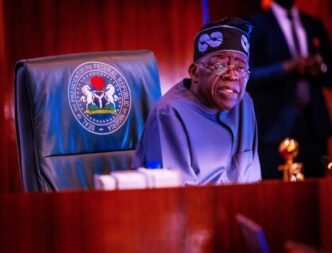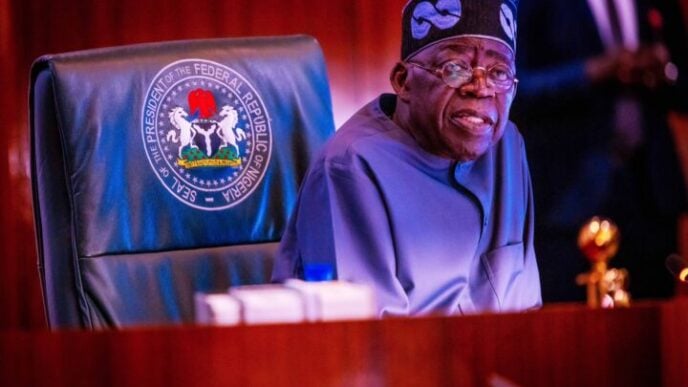When Aristotle, the legendary Greek philosopher, posited that government should be about engendering good life for the greater majority of the people, he was not drunk. This is especially so, when the statement is placed within the context of democracy — “government of the people, by the people, and for the people”, in which the majority carries the vote.
Any administration that is, at any time, eligible for re-election, and is desirous of being re-elected, would do everything legitimately possible to make the largest majority of the people happy to secure their mandate at the poll. Even the ones who are not seeking to be re-elected crave some legitimacy and acceptability by the people. How do they secure that? It is simple. Prioritise their wellbeing, and all will be well with the government and the polity. But when the people are unhappy; when life becomes difficult for them under a particular government, they begin to question the essence of government, and governance. They despair. In such a situation, it would be easier for a Benjamin Netanyahu to win a local election in Gaza, than for the leader of such an administration to get re-elected. Nigerians, and the administration of Bola Tinubu are inching closer to that point, every passing day.
Things are not easy. The purchasing powers of income earners have been drastically eroded, due to hyperinflation. The cheapest price of commodity you get in the market, is the one you meet there today. If you decide to leave, hoping that the price would reduce by the next day, by then, the price may have tripled, if not quadrupled. This is particularly true of basic needs for human existence in the shapes of food and medication, no thanks to the administration’s Breton-Woods-inspired anti-masses policies, that are trying so hard to give a different meaning to governance, other than that, which was given by Aristotle. At the heart of the policy thrust are, zero subsidy (except for pilgrimage — a non-economic endeavour), and the floating of the country’s currency — the Naira, against major currencies in the world, like the US Dollars, British Pounds, the Euro, etc. The latter is suicidal, in an export-deficient, and import-dependent economy like ours. The Naira becomes worthless when we are not exporting. Nobody demands for our currency to buy anything from us because we don’t produce what is in demand. So, it’s akin to “economic harakiri”, floating the Naira. Hence, the steady decline in the value of the currency has been in a geometrical progression, since the president assumed office, about 17 months ago. It fell from about ₦460 to about ₦1,700 at the moment. At a point, it was hugging ₦2,000.
As Nigerians (rich or poor, young or old, men or women, educated or uneducated) groan under the pain inflicted by these ill-advised and at best, ill-timed policies, those in government, especially, in the executive and the legislative arm, remain unperturbed by what Nigerians are going through, on a daily basis. The profligacy goes on, unabated. Somebody on social media, recently, posted the latest edition of an SUV (Sports Utility Vehicle) — Toyota Land Cruiser, with a caption: “Oh dear Lord, do not let our politicians see this, for if they do, that is where the next three months’ FAAC allocation would go into.” Funny as it sounds, it is very true. If they see it before the passage of the next appropriation bill, they would find an excuse to justify why our legislators (senators, members of the House of Representatives, State Houses of Assembly), Ministers, commissioners among others, must cruise in it. And they would, therefore, ensure that, provision for its procurement finds its way into the 2025 annual budgets. And guess, at whose expense? Of course, at the expense of you and me. At the expense of the provision of good roads, well-equipped hospitals, well-funded educational institutions among other social amenities that make living more meaningful for the poor. That has been our lots in the hands of these charlatans in positions of leadership, with chronic lack of empathy.
Advertisement
Considering the campaign slogan of President Tinubu in the 2023 general election — “Renewed Hope”, one would think that, with him at the helm of affairs, the hope of an average Nigerian would not be dashed with this kind of cruelty and dearth of empathy, like a mortuary attendant treats corpses under his care. But that would be utterly wrong, as it is evident since the 29th of May 2023. It appears as though the former Lagos State Governor has an axe to grind with the masses of this country. The latest in a long list of his neo-liberalist-inspired policies is the new proposed tax reform, which bill is currently, before the National Assembly.
While Nigerians have resigned to fate with the way prices of goods and services are skyrocketing as if there will be no tomorrow, the Tinubu administration is spoiling for more, ready to inflict more pain on Nigerians, as if we offended him personally.
The concept of a “balanced diet” has taken flight from the dining table in most Nigerian homes. The guiding philosophy now seems to be: “eat what you can lay your hands upon, and leave God to balance the diet”. People die of diseases as common as “malaria fever” that advances in medical science has supposedly tamed because they can no longer afford (an effective) anti-malaria drugs. Treating typhoid fever is a no-go area. The hitherto most affordable, and effective drug for it would go for around ₦5,000, assuming you resort to self-medication, for those who are pharmaco-literate. But today, Augmentin (a broad spectrum anti-biotic) that used to be about ₦3,850 pharmacy stores across the land, is now in the region of ₦30,000. Yes, you read aright: thirty thousand Naira, excluding other auxiliary drugs like multivitamins and the likes, that would be advised to be taken alongside it. In a nutshell, the cheapest medicine currently is, “do not fall sick”. But the only response from Tinubu’s presidency is a proposal to jerk up the consumer tax rate, popularly known as VAT.
Advertisement
Sometimes last year (2023), as the effects of total subsidy removal continued to bite harder, the President set up what he calls, “the Presidential Fiscal Policy and Tax Reforms Committee”, chaired by Taiwo Oyedele, with a mandate to achieve an 18 percent tax-to-GDP ratio in the next 12 months. So, at the end of the committee’s exercise, they came up with a number of recommendations for implementation, with a view to hitting the aforementioned target with the next 12 months. To this end, the National Tax Reforms Bill, among other things, proposes to increase Value Added Tax (VAT) from 7.5% to 10%. This is coming at a time inflation has reached an unprecedented level (29.90%). By now, every right-thinking human being would expect the government to focus its policies on how to bring down the prices of goods and services in the country, to make life more liveable for the masses. But instead, as if Tinubu has an axe to grind with the poor, who struggle to barely exist, he keeps churning out policies that take more from the poor than it does, from the rich. He carries on, as though he doesn’t know that, any increase in the value added tax would be passed on to the ultimate consumers of the end products of the goods and services on which it is imposed, the bulk of whom are the already pauperised masses.
Although, an official of the Federal Inland Revenue Service, Mr. Matthew Gbonjubola, who is the Co-ordinating Director, Compliance and Enforcement Group, in an interview with Channels Television’s Ṣeun Okinbaloye on Tuesday tried to explain that the Tax Reform Bill is not as bad as people make it to appear, I remain unconvinced that tax reform, aimed at jerking up VAT, is not going to solve our current economic problems. Rather, curbing corruption and profligacy in government would do.
Perhaps, the President has forgotten that, you can only tax people who have means of livelihood. And this is a country with an abysmally high rate of unemployment, yet his policies keep sending businesses into extinction due to suffocating cost of operations. Like the lawyers would say, “you can’t build something upon nothing”. You can’t tax unemployed citizens, just like you can’t tax businesses which run at losses, or those that have folded up. A former British Prime Minister, Winston Churchill said: “I contend that for a nation to try to tax itself into prosperity is like a man standing in a bucket and trying to lift himself up by the handle.”
So it is an exercise in futility for President Tinubu to think that he can tax Nigerians out of the current socio-economic quagmire in which we find ourselves, when many of the people are not gainfully employed.
Advertisement
But, there seems to be light at the end of the tunnel, as I learnt last week that, after their meeting in Abuja, the National Economic Council (NEC) the apex economic advisory body to the president, comprising the 36 State Governors, chaired by the Vice President, advised him to withdraw the anti people “tax reform bill”, from the National Assembly, to allow for wider consultations. We wait to see his response to the NEC’s advice. For get about what Senator Ali Ndume told Okinbaloye on Tuesday that the bill would be dead on arrival, if not withdrawn by the President as advised by the NEC, I trust our legislators, they would have passed the bill without reading a line of the provisions, if it is not withdrawn. It is unfortunate that, our National Assembly members whose three statutory duties are: representation, lawmaking, and oversight, are not doing better than groups of people arguing at newspaper stands across the country, where both literate and semi literate, middle and lower-class citizens converge, to discuss national issues in a rambunctious manner.
Rather than proactively make law for the good governance of the nation, they are, at best, reactive to events. They react only, to the ones that touch on their personal interests, and pass a resolution, giving orders that would never be obeyed by the executive — the “payers of their salary and allowances”. The only serious response our national lawmakers have offered to the terrible state of Nigerian roads is to procure, for themselves, expensive but rugged SUVs that would help them navigate the potholes and craters on the roads. Sometimes about a year ago, they (the lawmakers) sent one of them, the Senator representing Kogi West (my senatorial district), Sunday Karimi on a national television to come and defend that indefensible legislative insensitivity and lack of empathy, and I realise, that the funeral service for “parliamentary responsibility” (within the purview of lawmaking, representation, and oversight functions), was conducted the day the Independent National Electoral Commission (INEC) issued each of them their respective certificates of return. Rather than focusing on how they would make the executive arm of the government fix the roads, they concentrated on the purchase of SUVs, to safeguard their waists from forcibly dancing to the rhythm of “Azonto” that an average Nigerian commuter dances, daily, on the death traps called roads.
Nigerians would, therefore, not have broken any code, if they start questioning the essence of the National Assembly, whose members have proven over time that they’re chronically incapable of representing the interest of the common man. The National Assembly has proven to be a waste of public fund, as its productivity does not match how much of our national resources it gulps annually.
The executive (the demigods) carry on, as if, the machinery of government has been configured and conditioned, only, to pay salary of civil servants (when it is convenient to do so), pay salary and allowances of political office holders; fuel their cars and the ostentatious lifestyle that they’ve come to believe (albeit, erroneously) that they’re entitled to irrespective of the country’s economic reality. It is not designed to execute projects that would make life easier for Nigerians, especially, the poor. The only time, apart from election season, when they remember the masses is, when they need more funds to augment the revenue with which they fund their reckless lifestyles, and they want to look for something on which to impose tax. They may come up with something as ridiculous as “Death Tax”. You’d hear them say, things like, “Nigerians are not paying tax over their dead parents, grandparents and relatives, therefore XYZ Naira to, henceforth, be paid for losing any of your parents, grandparents, or relatives”.
Advertisement
Remember, there is no semblance of subsidy on electricity and petroleum products anymore. To show their crass ineptitude, wickedness, or both, critical sectors of the economy are left unsubsidised, but a personal issue like pilgrimage, a matter of faith that does not add any economic value to the country’s GDP was earlier year, (Hajj) subsidised to the tune of ₦90 billion. And guess what? The head of the National Hajj Commission of Nigeria (NAHCON) could not account for how the money spent. Pilgrims from some States like Kwara were allegedly starved of food, so much that a fight broke out, while they struggle over the little that was brought after the scandal was about to explode. Meanwhile, healthcare service is near zero. Education has been systemically taken beyond the reach (affordability) of the poor — forget about the National Education Loan Fund (NELFUND) because you must secure an admission into any Government-owned higher institution of learning, before you can be eligible to apply for the loan. And Nigeria has the most corrupt tertiary education admission system and process, known to humanity. The admission’s process and criteria remain as opaque as the price at which Dangote Refinery sells its refined petrol to the NNPCL.
I therefore ask, what is president Bola Ahmed Tinubu’s economic policy thrust? Does he have any axe to grind with the masses of this country that he keeps administering these excruciating pains on us? What is our offence? Is it to annihilate the poor into non-existence and make the geopolitical space called Nigeria, an exclusive zone for the less than 1% who are not feeling the pang of “The Pain” (T-Pain)? (No pun intended. After all, Dr. Doyin Okupe says, it is “Temporary Pain”). Is he trying to impress his Bretton Woods mentors cheer leaders, as he breathes life into their neoliberal anti-people economic policies? What hope is the excruciating pain being inflicted on Nigerians by his policies renewing? Was it the memes some “Gen-Zs” created on social media to make mockery of him while he was campaigning in 2023? If that is the case, could he please, have mercy, take pity on the rest of us, by forgiving their youthful exuberance?
Advertisement
President Tinubu should be kind enough to let Nigerians know what his economic policy thrust is, so that Nigerians can organise on how to respond, and adapt to it, instead of agonising.
Is he convinced or confused? This is because, at a time, he appeared as if, reducing the cost of governance was topmost in his policy agenda, he systematically increased the number of ministers in his cabinet. This is somebody who excavated the famous “Oronsaye Report”, dusted it and even empanelled a committee to see to the implementation of the recommendations therein. But in a volte-face turn, during his minor cabinet reshuffle, he sacked five (or six, if you factor in, Betta Edu) ministers, only to bring on board, an additional seven. Thus, he had, to the contrary, added one extra slot to the already bloated list. Every now and then, all his economic advisers could come up with is, introduction of tax handles, in almost every facet of our lives, as a people to fund their errors of governance. As part of the “medicine-after-death” policy to mitigate the effect of total subsidy removal, he set up a presidential initiative on Compressed Natural Gas (Pi-CNG), meant to usher in, a new era of post-subsidy, and also a cheaper and cleaner energy transition. To that effect, the CNG was to be sold at the rate of ₦230 per kg. But if the rumour making the round is anything to go by, it will soon be sold at the rate of ₦400 per kg. And if care is not taken, before anyone could say “BOLA”, we would be buying it at a price that competes with those of petrol and diesel. The cabal would shift their attention to it, like they did, LPG (cooking gas) that used to be around ₦300 to ₦500 per kg, until when the campaign for Nigerians to embrace it started. But now it is much costlier than diesel and petrol are, at ₦1500 per kg. So, Tinubu would do well to let Nigerians know, what is happening; what is our offence, and what can we do to atone for it, rather than being subjected to “T-Pain”?
Advertisement
Abubakar writes from Ilorin, Kwara State. He can be reached via 08051388285 or [email protected]
Advertisement
Views expressed by contributors are strictly personal and not of TheCable.



